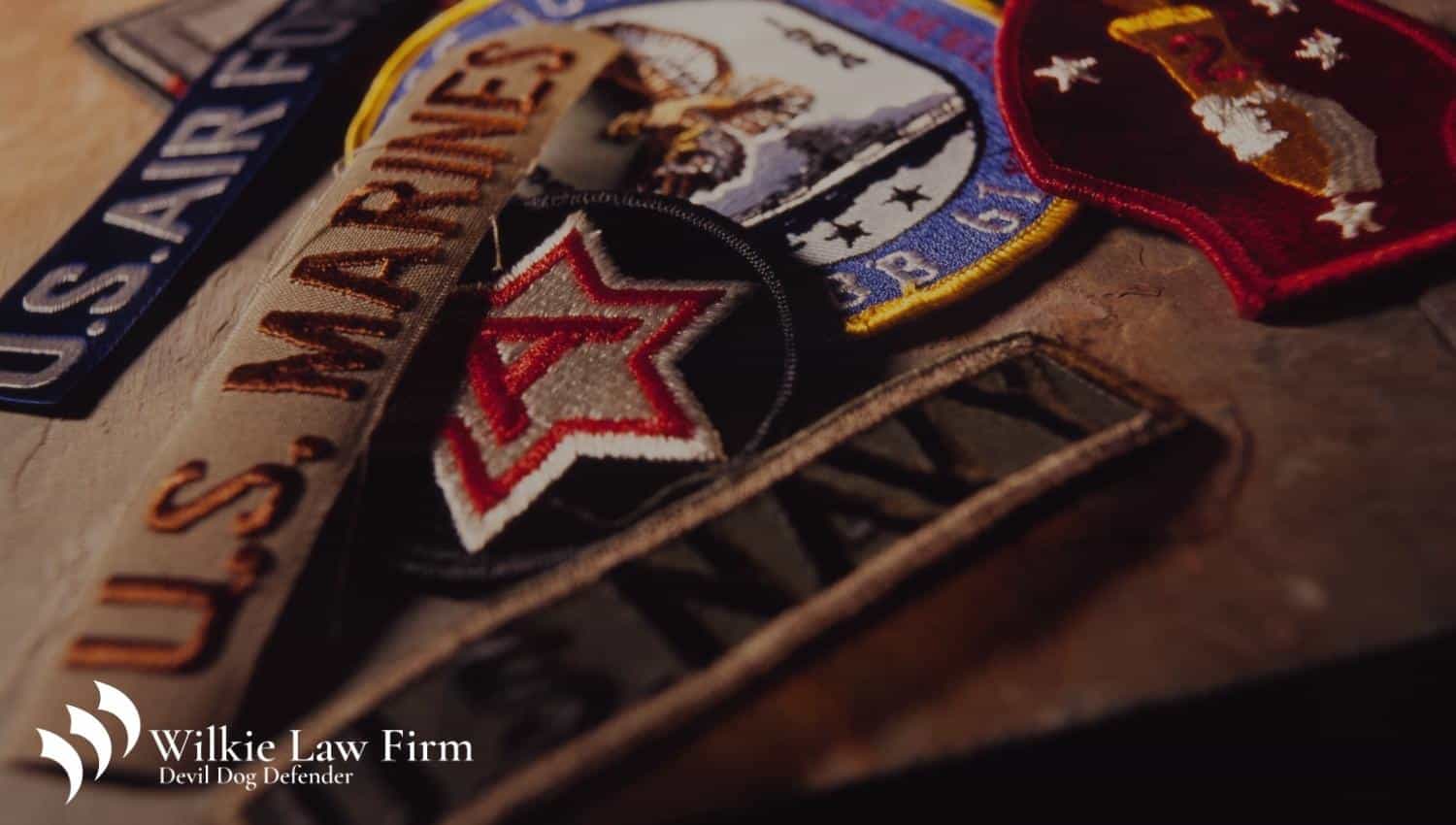UCMJ Article 131
Military Defense Attorney for UCMJ Perjury Charges
Home » UCMJ Article 131
Military Counsel
UCMJ Articles
Article 131 of the UCMJ - Perjury
Table of Contents
Members of the United States armed forces are governed by a unique code of laws: the Uniform Code of Military Justice. This code, also known as the Articles of the UCMJ, differs greatly from the laws set in place for everyday civilians. There are hundreds of articles within this code that service members must abide by, each covering a different aspect of military law. Below, our experienced military defense attorneys from The Wilkie Law Group will explain the details surrounding UCMJ Article 131 –Perjury.
What is UCMJ Article 131?
Article 131 of the Uniform Code of Military Justice dictates the act of perjury among service members. According to the Code, a perjury charge alleges that:
Any person subject to this chapter who in a judicial proceeding or in a course of justice willfully and corruptly:
(1) upon a lawful oath or in any form allowed by law to be substituted for an oath, gives any false testimony material to the issue or matter of inquiry; or
(2) in any declaration, certificate, verification, or statement under penalty of perjury as permitted under section 1746 of title 28, subscribes any false statement material to the issue or matter of inquiry; is guilty of perjury and shall be punished as a court-martial may direct.
Some articles of the UCMJ, such as Article 92 (failure to obey an order), apply solely to military service members rather than civilian society as a whole. The act of perjury, however, is one that is also found in the United States Code and governs all U.S. residents. Under 18 U.S. Code § 1621, any person who testifies, declares, deposes, or certifies any statement or testimony to be true while under oath and who simultaneously knows or believes that the information provided is not true is guilty of perjury.

Is Perjury the Same as Giving a False Official Statement?
This offense is distinguishable and apart from a violation of Article 107, a False Official Statement, in that perjury is limited to the context of judicial proceedings, whereas a false official statement can be made in any number of contexts. Additionally, a false official statement must relate to something that is “material”, meaning the matter in question need not be the main issue of the case. The proper test is whether the false statement has a natural tendency to influence or be capable of influencing the tribunal in decisions that are required to be made.
As made evident in the case of United States v. McLean, 10 C.M.R. 183 (A.B.R. 1953), such is not the case of perjury. You may be guilty of committing perjury even if the “lie” relates to something immaterial.
Is Perjury the Same as False Swearing?
This offense is also distinguishable from the offense of false swearing. Similar to providing a false official statement, false swearing is not exclusively limited to a judicial hearing and does not require the materiality element. As such, perjury can come in two variations: giving false testimony (testifying falsely) or subscribing false statements (affirming wrong information).
Elements of UCMJ Article 131 (Perjury)
Below, we’ll further break down each of these required elements of a perjury charge:
(1) Giving false testimony.
(a) That the accused took an oath or affirmation in a certain judicial proceeding or course of justice;
(b) That the oath or affirmation was administered to the accused in a matter in which an oath or affirmation was required or authorized by law;
(c) That the oath or affirmation was administered by persons authorized to do so;
(d) That upon the oath or affirmation the accused willfully gave certain testimony;
(e) That the testimony was material;
(f) That the testimony was proven false; and
(g) That the accused did not then believe the wrong testimony to be true.
(2) Subscribing false statement.
(a) That the accused subscribed a certain statement in a judicial proceeding or course of justice;
(b) That in the declaration, certification, verification, or statement under penalty of perjury, the accused declared, certified, verified, or stated the truth of that certain statement;
(c) That the accused willfully subscribed the statement;
(d) That the statement was material;
(e) That the statement was proven false; and
(f) That the accused did not then believe the statement to be true.
What is the Penalty for Perjury in the Military?
Any service member who is found to have committed perjury in the eyes of the law is subject to fit punishment as directed by a court-martial. The maximum punishment for both providing false testimony and subscribing false statements includes a reduction in rank to E-1, dishonorable discharge, up to 5 years of confinement, and a total forfeiture of all pay and allowances.
Defenses for Violation of Article 131
It is important to note that to commit perjury, a service member must be proven to have possessed a certain state of mind. As a result, certain defenses factually relating to this offense may apply. For example, voluntary intoxication.
Voluntary Intoxication
Intoxication may so impair the mental processes as to prevent a person from entertaining a particular intent or reaching a specific state of mind. To successfully argue this defense in a perjury prosecution, the evidence must show that the accused was intoxicated at the time he testified. However, evidence that he was intoxicated at the time of the event about which he testified is immaterial as far as raising this defense is concerned.¹ Another example of a defense is mistake of fact.
Mistake of Fact
Evidence that an accused charged with perjury was intoxicated at the time of the events about which he testified raises the defense of mistake of fact, as such evidence relates to his ability to see and recall what transpired or that the false testimony provided was not in respect to a material matter. If reasonable doubt can be raised surrounding the accused’s ability to comprehend certain information, they may not be held guilty for the act of perjury.
Two Witness Rule
The “subscribing a false statement” variant of a perjury charge has some unique legal aspects. One being that to be convicted, the Government must abide by the “Two Witness Rule.” The accused’s allegedly perjured statement must be shown by the testimony of at least two witnesses or by the testimony of a single witness which directly contradicts the accused’s statement, plus other corroborating evidence.
An example of this can be found in the case of United States v. Olivero, 39 M.J. 246 (C.M.A. 1994), where the circumstantial evidence of marijuana use was insufficient without at least one corroborated material witness with direct proof of such use. Other cases involving the two witness rule include:
- United States v. Tunstall, 24 M.J. 235 (C.M.A. 1987) – The alleged false oath related to two or more facts wherein one witness tied the accused to one fact and the other witness tied them to another. Because the two witnesses corroborate each other in the fact that the accused swore falsely, their testimony authorized conviction.
- United States v. Lowman, 50 C.M.R. 744 (A.C.M.R. 1975) – The accused’s testimony was contradicted by two witnesses.
- United States v. Jordan, 20 M.J. 977 (A.C.M.R. 1985) – The two witness rule was not applicable when documentary evidence directly disproving the “falsity” of the accused’s oath was shown.
Direct Proof
Another condition of holding the charge of perjury valid is direct proof. No conviction may be had for perjury, regardless of how many witnesses testify to its falsity and no matter how compelling their testimony may be, if such testimony is merely circumstantial.
Military Defense Attorney for Article 131 Violations
A service member stands to lose a lot when they face a conviction for violating Article 131 of the UCMJ. It’s incredibly important that they have someone on their side who knows the ins and outs of the military legal code and whose only concern is fighting tooth and nail for their rights, freedom, and future. Though they may be free, a military-appointed criminal defense attorney faces undue influence from their superior military chain of command, meaning they often put their own career before their client’s best interests. On the other hand, a private military criminal defense lawyer like Aden Wilkie has the freedom of legal maneuver and no threat to his own rank or position, ensuring his clients receive his full attention and dedication.
Whether you’re under investigation or pending court-martial, you need the skill of a qualified civilian criminal defense attorney like the Devil Dog Defender. In addition to curating a solid defense strategy and handling all court-martial and military criminal justice matters, Aden also provides excellent military discharge upgrade counsel and record correction services, as well. Located in Jacksonville, North Carolina, The Wilkie Law Group provides Camp Lejeune legal services as well as Fort Bragg legal services in addition to serving other bases, camps, stations, and posts across the nation.
Reminder: this article is solely for general information purposes. Once a formal attorney-client relationship with Aden Wilkie has been established, you will be able to learn more about your legal options regarding your Article 131 perjury case. Call 910-333-9626 today for a consultation or complete our online intake form to learn more.
Footnotes
¹ United States v. Chaney, 30 C.M.R. 378 (C.M.A. 1961)
Contact an Article 131 Counseling Attorney
It is vital to use the knowledge of a seasoned attorney to organize and prioritize the material to present to the command. Call The Wilkie Law Group at 910-333-9626 to arrange your consultation.





